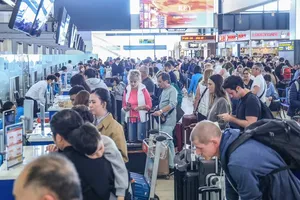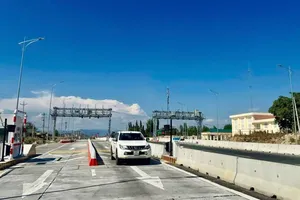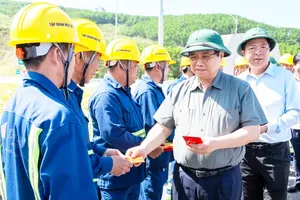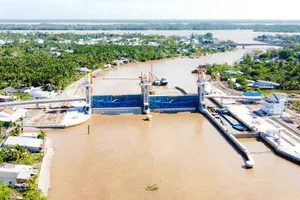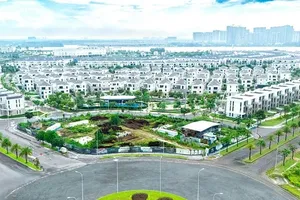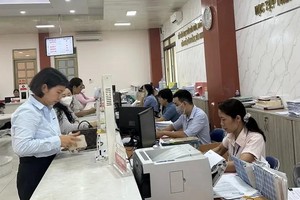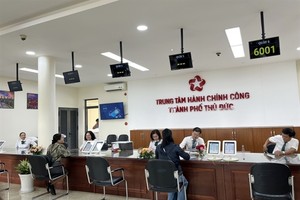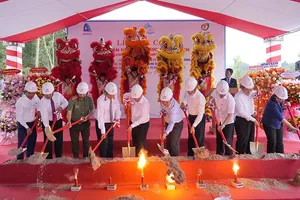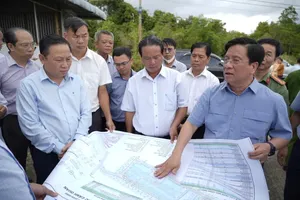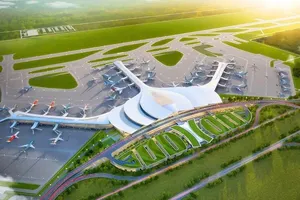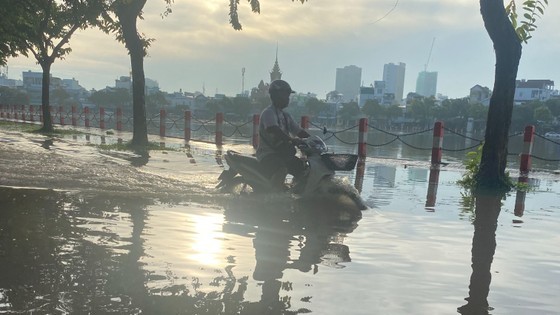 |
A vehicle is half-submerged |
Many roads and alleys in Can Tho City continue to be heavily flooded for the fifth consecutive day meanwhile prolonged heavy rain and high tides pummeled Ca Mau Province flooding more than 19,000 hectares of rice fields in districts Thoi Binh and U Minh, said the Office of the National Steering Committee for Natural Disaster Prevention and Control and Rescue in Ca Mau Province. Localities are urgently responding to increasingly complicated weather.
In addition, according to initial statistics, more than 880 hectares of summer rice, winter-spring rice and more than 150 hectares of vegetables and fruit trees in these two districts were submerged in floodwaters.
Many roads and some low-lying areas were also seriously flooded, affecting people's lives and production.
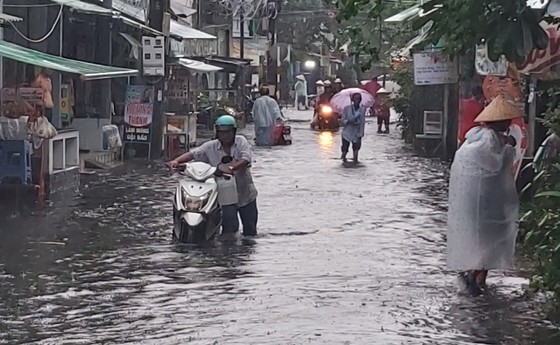 |
| Local people walk through water while their vehicle is half-sumberged |
Authorities in Kien Giang said that some localities in the area experienced heavy rain, accompanied by thunderstorms, tornadoes and strong winds at sea due to the influence of a low pressure zone damaging people's property.
Heavy rain hit Hon Nghe island commune in Kien Giang Province’s Kien Luong District. Rainwater from the mountains, cascading soil and rock hit the residential area around the island damaging property. Accordingly, 24 households in the two hamlets of Bai Nam and Bai Chuong suffered damage. Thunderstorms and big waves also caused landslides on the embankment of group 3 in Bai Chuong hamlet.
Statistically, natural disasters caused property damage in Hon Nghe island commune which is estimated at more than VND500 million.
According to the Southern Institute of Water Resources Research, heavy rains today caused rivers to swell to dangerous levels; for instance, the water level on the Hau River in Can Tho City was 2.09m, exceeding the third-stage warning level by 0.09m. Many roads and alleys continue to be heavily inundated.
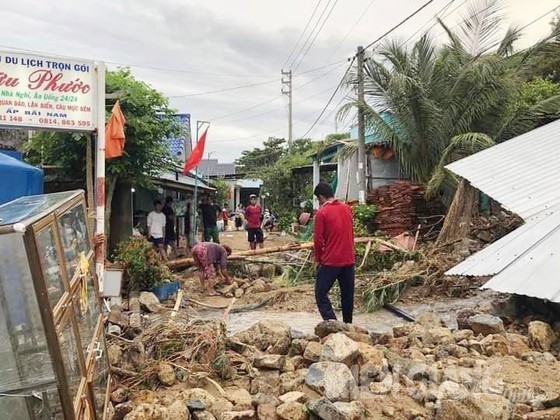 |
24 households in the two hamlets of Bai Nam and Bai Chuong suffer damage |
The Chairman of Ca Mau Provincial People's Committee directed local authorities to effectively operate the sewer system, dams, and pumping stations to drain water, deal with high tides, and protect crop production.
Local authorities regularly pay visits to districts, encouraging forces to help inhabitants overcome the consequences of natural disasters.
